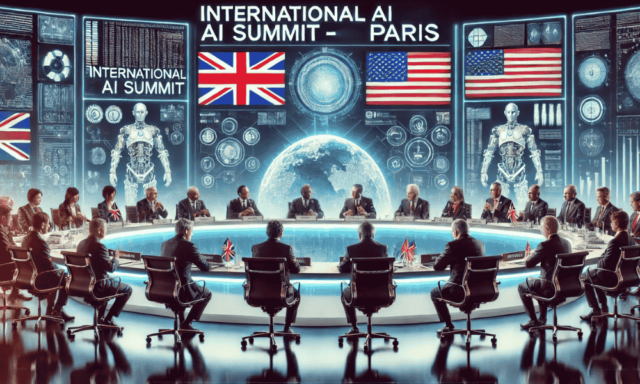Paris: The UK and US have refused to sign an international AI agreement at the Paris AI Summit. The declaration, supported by 60 nations, promotes an “open,” “inclusive,” and “ethical” approach to artificial intelligence (AI) development.
Why Did the UK and US Decline?
The UK government cited concerns about national security and global governance as reasons for not signing. A government spokesperson stated that while the UK agrees with many points in the declaration, it lacks clarity on governance and does not adequately address security risks.
US Vice President JD Vance took a strong stance against overregulation, warning that excessive restrictions could hinder AI innovation. He emphasized that the Trump administration prioritizes “pro-growth AI policies” over restrictive rules.
Diverging Views on AI Regulation
French President Emmanuel Macron pushed for stronger AI regulations, arguing that rules are necessary to guide the technology’s progress. The UK had previously been a leader in AI safety, hosting the AI Safety Summit in 2023, but its refusal to sign this agreement raises concerns about its commitment to global AI governance.
Andrew Dudfield of the fact-checking group Full Fact criticized the UK’s decision, warning it could harm its credibility in AI ethics and safety. However, UKAI, a trade body representing AI businesses, supported the move, citing the need to balance innovation with energy demands.
What Does the AI Declaration Say?
The declaration outlines key priorities, including:
- Reducing digital divides by making AI accessible.
- Ensuring AI development remains transparent, safe, and trustworthy.
- Addressing AI’s growing energy consumption and its impact on sustainability.
Michael Birtwistle of the Ada Lovelace Institute noted that the UK’s disagreement with the declaration remains unclear, as it broadly aligns with previous AI safety commitments.
Global AI Politics and Trade Implications
While the UK and US did not sign the declaration, they committed to other agreements at the summit, including those on sustainability and cybersecurity. Downing Street stressed that the decision was based on national interests, not US influence.
The summit also coincided with rising trade tensions between the US and Europe. President Trump’s tariffs on steel and aluminum have created friction, with the UK balancing relations between Washington and the EU.
The Future of AI Governance
The refusal to sign the AI declaration highlights ongoing debates over regulation, national security, and economic growth. As AI advances, nations must navigate the challenge of fostering innovation while ensuring ethical and sustainable development.











